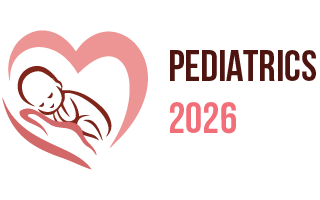4th International Conference on
Pediatrics & Neonatology
August 13-14, 2026 | Barcelona, Spain

Address: Avinguda Del Maresme 78 Ronda De Dalt Exit 15, 08940 Comellà de Llobregat, Barcelona, Spain
Pediatrics 2026

Ministry of Education, Ethiopia
Abstract:
This study was aimed to assess the prevalence and risk factors of gastrointestinal parasites on school children at Bochesa Elementary School around Lake Zwai, Ethiopia. Cross-sectional study was conducted on 384 school children in May 2016. The gastrointestinal parasites were examined with wet mount and formol-ether concentration techniques. The overall presence of gastrointestinal parasites was confirmed when observed by any of the methods used. The prevalence of infections was reported in proportions. Chi-square (χ2) test was used to evaluate the association between categorical variables and infection prevalence. For identification of determinant factors, Binary logistic regression was held, and finally the association between independent variables and dependent variables were describe on the basis of odd ratio (OR) with 95 % confidence interval (CI). Crude OR was estimated by univariate regression analysis and adjusted OR was then estimated by multivariate logistic regression analysis. Values were considered statistically significant when the p-value was less than 0.05. The overall prevalence of gastrointestinal parasites was 22.6%. Males, 54 (14.1%) were more infected than females, 32 (8.3%), and 1-4 grade category, 64 (16.7%) were more infected than 5-8 grade category, 22 (5.7%). Age groups of 7-14, 78 (20.3%) were also more infected than >15, 8 (2.1%); however, the variation was not significant (p>0.05). In this study, parasitic coinfection was common; however, single gastrointestinal parasites were more dominant. The overall rate of gastrointestinal parasites highlights that the environment is conducive to water-related disease. Health education on personal and environmental hygiene keeping should be given to school children and safe wetland playing ground should be identified.
Biography:
Ayalew Sisay Beyene has received his Ph.D in Fisheries and Aquatic Sciences from Addis Ababa University under the Supervision of Professor Brook Lemma in 2019. He has been an instructor and researcher at Debre Markos University since 2011. His research interests include the prevalence of Fasciolosis on bovine and ovine. Research conducted on gastrointestinal helmintic parasite on school children around wetlands has permitted his travel to United Arab Emirate, Asia.
